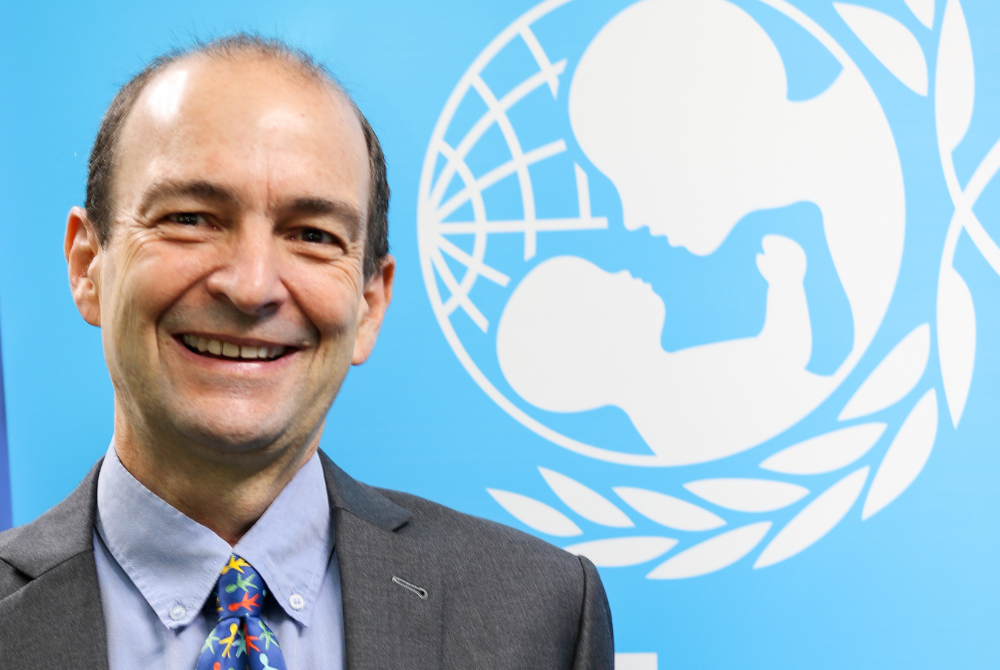The path to greater justice for children in Malaysia

The path to justice is not paved with gold – and the path to justice for children, even less so. Yet the justice system needs to be accessible to child victims and the interests of the child need to be prioritised.
In particular, we need to look at the way children are handled in sexual offence cases. In Malaysia, sadly, this path is not as smooth as it could be. For too many children, it is actually a daunting and potentially terrifying journey.
Last week, the Government announced its planned amendments to the Evidence of Child Witness Act 2007 and the Sexual Offences Against Children Act 2017 (SOACA).
These changes – which include child-friendly steps to protect victims, legislation of new crimes, and compensation for victims – will fortify the laws and safeguards that protect children as they navigate the necessary but potentially treacherous judicial process.
UNICEF welcomes these proposed amendments. It is a clear signal that the Government is dedicated to making the country safer for its children.
Lawmakers in the Parliamentary Special Select Committee on Women, Children’s Affairs and Social Development also presented a comprehensive roadmap in 2022 that offered paths to increase the support for child victims and witnesses in the criminal justice system, for example by minimizing the retraumatization of child victims.
Currently, the Acts protect children in two different capacities. Firstly, the Evidence of Child Witness Act gives young witnesses a range of important accommodations, including the right to testify via video link, and to have a dedicated support person.
Secondly, the SOACA, brings strengthened legal protection to child victims of sexual violence, including those that take place online.
These laws have provided a solid foundation, but the newly-proposed amendments are, as Datuk Sri Azalina Othman Said, Minister in the Prime Minister’s Department (Law and Institutional Reform) said, imperative to keep up with current times and technology.
It is clear that technological advancements have brought growing threats to children online. In 2017, in the year that the SOACA was passed, the Royal Malaysia Police (RMP) detected a monthly average of four IP addresses suspected of engaging in child sexual abuse material.
By 2021, this monthly average had increased to 4,062 IP addresses and in the first quarter of 2022 the average had gone up to 4,795.
It is estimated that every year some 100,000 children in Malaysia aged 12 to 17 may experience online sexual exploitation or abuse, as revealed in the 2022 Disrupting Harm Study.
Live-streaming and sexual extortion were some of the forms of exploitation discussed in the study which drew on the research expertise of ECPAT, INTERPOL and UNICEF Innocenti.
Additionally, in the first six months of 2022, the RMP recorded a total of 1,348 sexual abuse cases involving children: 641 cases of rape, 47 cases of gang rape, 127 cases of incest, 95 cases of unnatural sex and 438 cases of molestation.
We must remember, however, that even as laws are strengthened, effective implementation is just as crucial. A recent study by the Women’s Centre for Change in Penang highlighted several challenges faced by child victims in the criminal justice system.
These include not using a video live link in court, withdrawing their complaint due to intimidation, and having to provide testimony on their own without a support person.
Government representatives interviewed in the Disrupting Harm study also indicated that, in the three years since the enactment of the SOACA, few cases of online child sexual exploitation and abuse reported to the police had culminated in prosecution.
While the number of arrests had increased from five in 2017 to 13 in 2019, this was not matched by the number of prosecutions (four in each of the three years) or convictions – two in 2018 and only one conviction in 2019.
The much-needed amendments will equip law enforcement and the judicial system with important tools to ensure child victims receive the protection they deserve.
They will spare child victims from experiencing further trauma in a judicial system that does not fully meet their needs. They will offer families a safer way to seek justice for their children, and they will help hold more perpetrators of sexual crimes accountable.
The success of these laws though will require all components of society to continue to work together – policymakers, implementation agencies, civil society, and the community itself. It is only then that the path to justice will become one that is healing and this country can be a safer place for all children.
This article is written by Robert Gass, UNICEF Representative to Malaysia & Special Representative to Brunei Darussalam.










